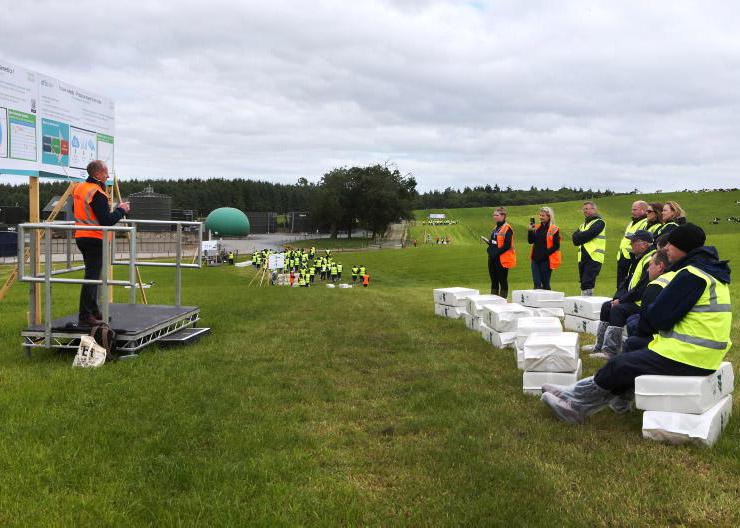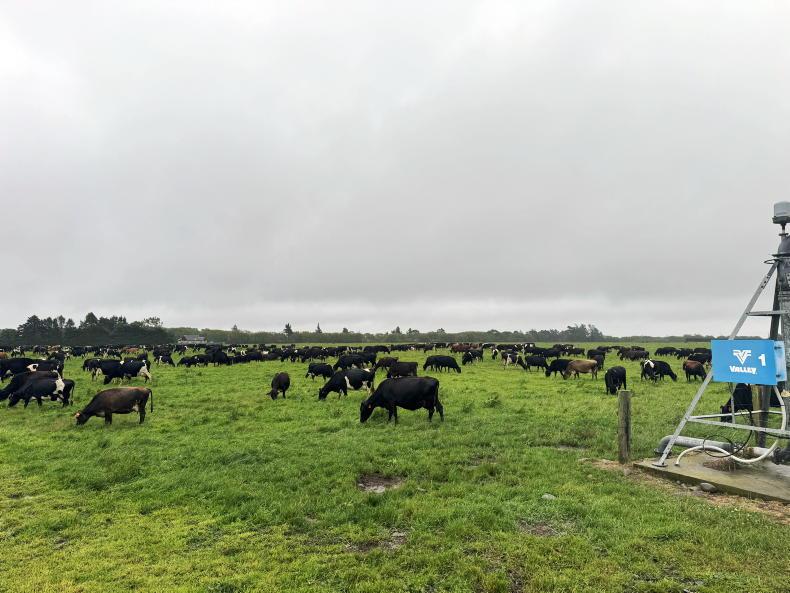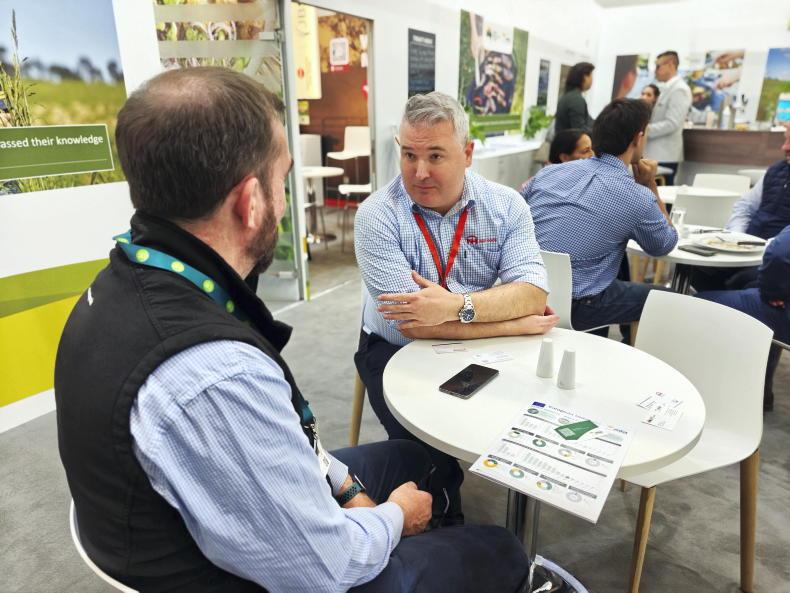Like it or not, Ireland has learnt a lot from New Zealand – at least agriculturally. Given its location and land type, it has had no option down the years but to concentrate on farming and food processing in its widest sense and latterly tourism, though that has taken a battering with the COVID-19 restrictions, which it should be said, have been spectacularly successful.
Since 1974, the Irish Farmers Journal has through the Stephen Cullinane scholarship scheme, sent young Macra na Feirme members to the country to get a different perspective on grassland farming, especially dairying. Many of these have returned after their sojourn to set up and run some of the leading dairy farms in the country.
Last week I was brought up to speed on the latest agricultural developments in New Zealand as they faced into an important general election
On the cusp of EEC entry in 1973, the late Paddy O’Keeffe as Irish Farmers Journal editor, chartered a jumbo jet and organised a tour of farms to let Irish farmers see for themselves in terms of grass-based dairying what was being achieved on the far side of the world.
Farming strength
While Ireland has since become a major destination for multinational investment, the farming strength of both countries has continued to develop.
Last week I was brought up to speed on the latest agricultural developments in New Zealand as they faced into an important general election. Two current developments under discussion there struck me. The first is their policy to isolate out methane from the general policy on greenhouse gases. When this was first mooted a few years ago, many people saw it as a self-serving scientific fudge – not any longer. It was noticeable in last week’s special Irish Farmers Journal webinar involving those most closely involved with climate change and environmental policy that there was a broad acceptance that the present basis of treating methane was scientifically incorrect but because it was so wrapped up in the Paris climate agreement that it would be very difficult to change the method of accounting for methane before the review in 2030. But it is clear a change is on the way.
The fact that the Green Party in New Zealand is joining in a fundamental re-examination of the gene editing restrictions should send a clear message to our Green Party here
The other scientific aspect of last week’s New Zealand briefing was the cross-party consensus that has emerged on the question of reviewing the regulations around genetic modification (GM) and particularly gene editing which has just recently been declared illegal in Europe. The fact that the Green Party in New Zealand is joining in a fundamental re-examination of the gene editing restrictions should send a clear message to our Green Party here that Europe cannot bury its head in the scientific sand while our farmers become ever less competitive.
Where New Zealand ends up on the critical issue should be watched closely in Ireland.
Read more
30 west Kerry farmers to pilot climate change solutions
Watch: full interview with Prof Myles Allen from Oxford University
Like it or not, Ireland has learnt a lot from New Zealand – at least agriculturally. Given its location and land type, it has had no option down the years but to concentrate on farming and food processing in its widest sense and latterly tourism, though that has taken a battering with the COVID-19 restrictions, which it should be said, have been spectacularly successful.
Since 1974, the Irish Farmers Journal has through the Stephen Cullinane scholarship scheme, sent young Macra na Feirme members to the country to get a different perspective on grassland farming, especially dairying. Many of these have returned after their sojourn to set up and run some of the leading dairy farms in the country.
Last week I was brought up to speed on the latest agricultural developments in New Zealand as they faced into an important general election
On the cusp of EEC entry in 1973, the late Paddy O’Keeffe as Irish Farmers Journal editor, chartered a jumbo jet and organised a tour of farms to let Irish farmers see for themselves in terms of grass-based dairying what was being achieved on the far side of the world.
Farming strength
While Ireland has since become a major destination for multinational investment, the farming strength of both countries has continued to develop.
Last week I was brought up to speed on the latest agricultural developments in New Zealand as they faced into an important general election. Two current developments under discussion there struck me. The first is their policy to isolate out methane from the general policy on greenhouse gases. When this was first mooted a few years ago, many people saw it as a self-serving scientific fudge – not any longer. It was noticeable in last week’s special Irish Farmers Journal webinar involving those most closely involved with climate change and environmental policy that there was a broad acceptance that the present basis of treating methane was scientifically incorrect but because it was so wrapped up in the Paris climate agreement that it would be very difficult to change the method of accounting for methane before the review in 2030. But it is clear a change is on the way.
The fact that the Green Party in New Zealand is joining in a fundamental re-examination of the gene editing restrictions should send a clear message to our Green Party here
The other scientific aspect of last week’s New Zealand briefing was the cross-party consensus that has emerged on the question of reviewing the regulations around genetic modification (GM) and particularly gene editing which has just recently been declared illegal in Europe. The fact that the Green Party in New Zealand is joining in a fundamental re-examination of the gene editing restrictions should send a clear message to our Green Party here that Europe cannot bury its head in the scientific sand while our farmers become ever less competitive.
Where New Zealand ends up on the critical issue should be watched closely in Ireland.
Read more
30 west Kerry farmers to pilot climate change solutions
Watch: full interview with Prof Myles Allen from Oxford University










SHARING OPTIONS